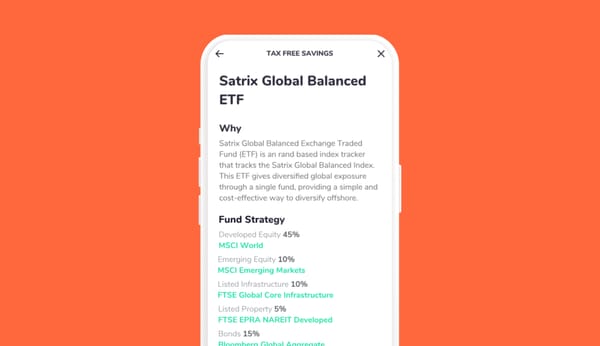I often hear my friends say, "I don't have any money to invest" and so, many people ask me if it's a good idea to borrow money to invest. 9 times out of 10 the short answer is “No!”. I want to take you through my reasoning as more and more investing apps like Robinhood are making it easier and easier for people like you and me to get “leverage” or “invest on margin” (industry slang for borrowing to invest).
Before we start unpacking whether or not it's a good idea to borrow money to invest, let’s just be clear on what it means to borrow money. All credit transactions typically have the following 3 elements in common: how much you borrow, what interest you are charged and what fees you have to pay. Another fundamental truth about debt is that it needs to be serviced regularly, typically monthly but this can vary.
Ok, so why do some people think borrowing to invest is a good idea? Well, let’s assume you come across an investment with supposed investment returns that are greater than the interest rate you’ll be charged! For example, let’s say your bank gives you a personal loan of R30,000 with an annual interest rate of 15% and you’ve seen that bitcoin is up 40.7% since the start of 2021. Simple (and mistaken) math could tell you that you could earn a 25.7% return if you used the loan to buy bitcoin (40.7% less 15%).
There are a number of flaws in the logic above. Firstly, and perhaps most importantly, as we’ve said many times before, past performance is no guarantee of future success. So although bitcoin jumped 40% since the start of the year, if you’d bought bitcoin mid April 2021, you could have been exposed to a 35% drop over the next month. Ouch!
Secondly, you have to take time into account because interest compounds, meaning that how much the loan will cost you, often called the cost of capital, depends on how long it takes you to pay off the loan. The shorter the payback time, typically the lower the absolute cost. However, if you’re waiting for your investment to grow more than your cost of capital, which constantly goes up, you may not have the luxury to wait and be forced to sell your investment at a loss.
The last error in the example above is not taking any investment transaction fees or the cost of getting the loan. Fees are so often overlooked, but can have a big impact on outcome.
Take the example of speculating on property. Let's say you take out a home loan to buy a flat that you plan to rent out. You do this because the prices of property have been steadily increasing over the last few years and you think there will always be demand for rental apartments.
Now let's say that your tenant misses his rent payment or moves out and you can't find a replacement, then the property market stagnates or even declines so your bank won't refinance your home loan. The end result is that you aren’t able to pay your monthly home loan installments. Your bank is not going to say "Don't stress, you can pay me next month." If you default on your loan, the bank will reclaim that flat and you will lose everything - the transfer duty, the lawyers fees, the bond origination fees, the interest you’ve already paid AND the flat!
I particularly chose this example, i.e speculating in property, because borrowing money to invest in property (wisely) is often the only time when mere mortals like you and me should even consider borrowing to invest. Yet, as demonstrated, it can go wrong for many people for many different reasons: no tenants, losing a job, emergency medical costs, death in a family - you name it.
Borrowing money to invest is like petrol in a car. In a rising (or bull) market a car uses more gas to go faster. However, in a crash, petrol is what makes the car blow up!
Remember, the fundamental reality is that borrowing to invest takes away your choice about 'when' to exit your investment. Someone who can hold onto an investment for longer can afford to ignore times when the investment loses value. Wealth takes time and effort to accumulate but is easy to lose. Don’t be fooled by fraudsters claiming unrealistic returns. If borrowing to invest were easy then everyone would be doing it!







![How & Why You Should Do a Financial Reset [+ downloadable financial reset journal]](/blog/content/images/size/w600/2024/12/Setting-goals-for-the-year.png)


